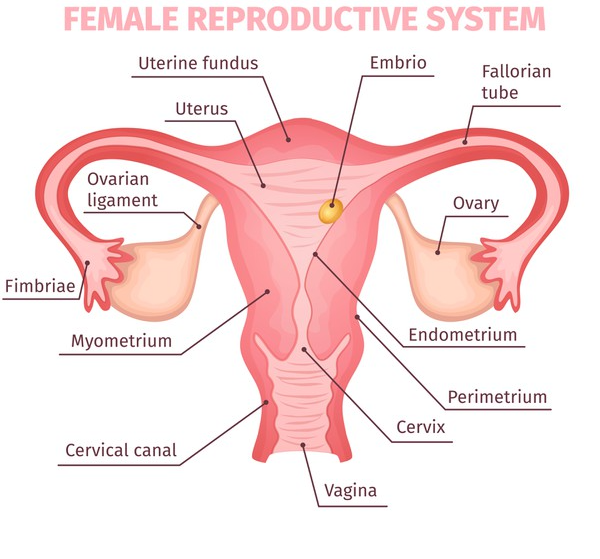Can You Be Pregnant and Still have a Period?
The answer is no. It’s not possible to have a period if you are pregnant.
Some women may experience spotting in the first few weeks of pregnancy. The blood is usually light pink or dark brown in color. But, even intermittent bleeding that seems like a period during pregnancy is not the same as menstruation.
Bleeding during pregnancy can occur for various reasons. Pap smears, vaginal exams, or sex can cause spotting. This is because there's more blood going to your cervix during pregnancy, and is usually nothing to worry about. However, if you are bleeding heavily enough to fill a pad or tampon, either you are not pregnant, or it could be a sign of miscarriage. In this case, you may need to seek medical care.
Note that many women who experience pregnancy bleeding go on to have healthy pregnancies and babies. Read on to find out more.
Why you can’t have a period if you are pregnant
A period is the loss of blood you experience at the end of a menstrual cycle. It occurs because the egg that was produced by your ovaries was not fertilized. As a result, your hormone levels (estrogen and progesterone) drop, and the lining of your womb comes away, causing vaginal bleeding. During a period, the bleeding starts off light, then gets heavier and becomes darker in color.
If you have had a positive pregnancy test, it means that the egg was fertilized and is now growing as an embryo in your uterus. The lining of your womb will thicken to support fetal growth. Once you are pregnant, you no longer experience menstruation. Vaginal bleeding during pregnancy is therefore not a sign of a period, but among other causes, could be a sign that the embryo has implanted on the uterine wall.
What is implantation bleeding?
According to the American College of Obstetricians and Gynecologists, between 15 - 25% of women experience bleeding in the first trimester. Spotting or light bleeding can occur when the fertilized egg (or embryo) implants on the uterine wall. It is often confused with menstruation because the bleeding occurs during the time you might expect a period.
Implantation bleeding is generally a lot lighter than a regular period and only lasts a day or two.
Other causes of bleeding during pregnancy
Heavy bleeding during your pregnancy could be a sign that something is wrong, and includes:
Subchorionic hemorrhage - a blood clot that forms behind the placenta.
A cervical infection.
Placenta previa – when the placenta implants and grows over the cervix.
Placental abruption - when the placenta detaches from the uterine wall before or during birth, which can cause serious complications if not detected early.
Uterine rupture – when the muscle of the uterus separates or tears.
An ectopic pregnancy – when the fertilized egg does not pass down to the uterus and starts to grow in the fallopian tubes.
A pregnancy loss or miscarriage.
If you experience heavy bleeding during pregnancy, you should visit your healthcare provider immediately.
What are the signs of early pregnancy loss?
Loss of pregnancy is known as a miscarriage. It occurs in around 10% of known pregnancies. Miscarriage is usually accompanied by bleeding and cramping. After a miscarriage, the pregnancy tissue may remain in the uterus and may need to be surgically removed.
What is an ectopic pregnancy?
An ectopic pregnancy occurs when the fertilized egg does not move through the fallopian tubes into the uterus. As a result, the embryo implants in the fallopian tubes. Ectopic pregnancies can be very dangerous, as the fallopian tube may rupture, causing internal bleeding.
At times vaginal bleeding is the only sign that an ectopic pregnancy has occurred. Other symptoms may include severe pelvic or abdominal pain and can occur even before you know you are pregnant. Seek immediate medical care if you suspect you may have an ectopic pregnancy.
What is placental abruption?
Placental abruption usually occurs in the last few months of pregnancy. The placenta detaches from the uterus, causing heavy bleeding, severe abdominal pain, and cramping. Certain health conditions, such as high blood pressure, can increase the risk of placental abruption. Placental abruption is a serious condition that requires immediate medical attention.
What is a uterine rupture?
A uterine rupture is when the muscle of the uterus separates or tears. It often causes uncontrolled bleeding. Although rare, uterine ruptures mostly occur in women who have had a previous cesarean section, and tearing occurs along the uterus' old scar lines.
Conclusion
It is not possible to get your period while you are pregnant. Many women experience spotting early on in their pregnancies, and it is not a sign that something is wrong. However, if you experience severe and persistent bleeding, seek immediate care.
+ References
Jackson, E., & Glasier, A. (2011). Return of Ovulation and Menses in Postpartum Nonlactating Women. Obstetrics & Gynecology, 117(3), 657-662.
la leche league international. (n.d.). Fertility. Retrieved January 2021, from la leche league international: https://www.llli.org/breastfeeding-info/fertility/
Lewis, R. (2020, February 17). Fact or Fiction? You Can’t Get Pregnant While Breastfeeding. Retrieved January 2021, from healthline Parenthood: https://www.healthline.com/health/pregnancy/can-you-get-pregnant-while-breastfeeding#chances-of-pregnancy
Medela. (n.d.). Can You Get Pregnant While Breastfeeding? Retrieved January 2021, from Medela: https://www.medela.us/breastfeeding/articles/breastfeeding-and-your-fertility


